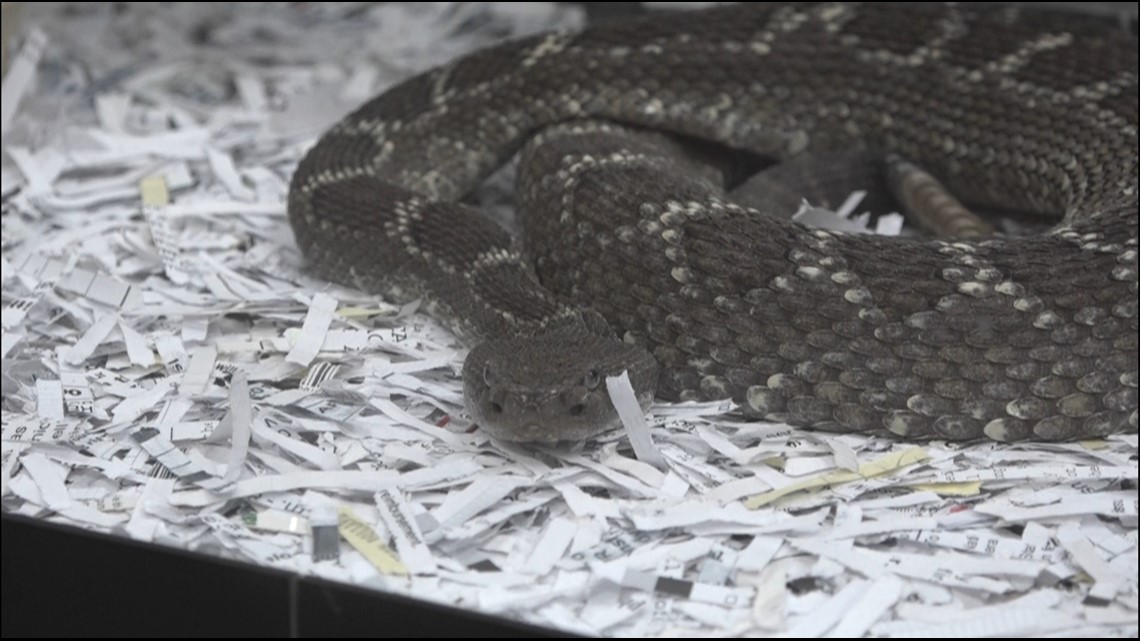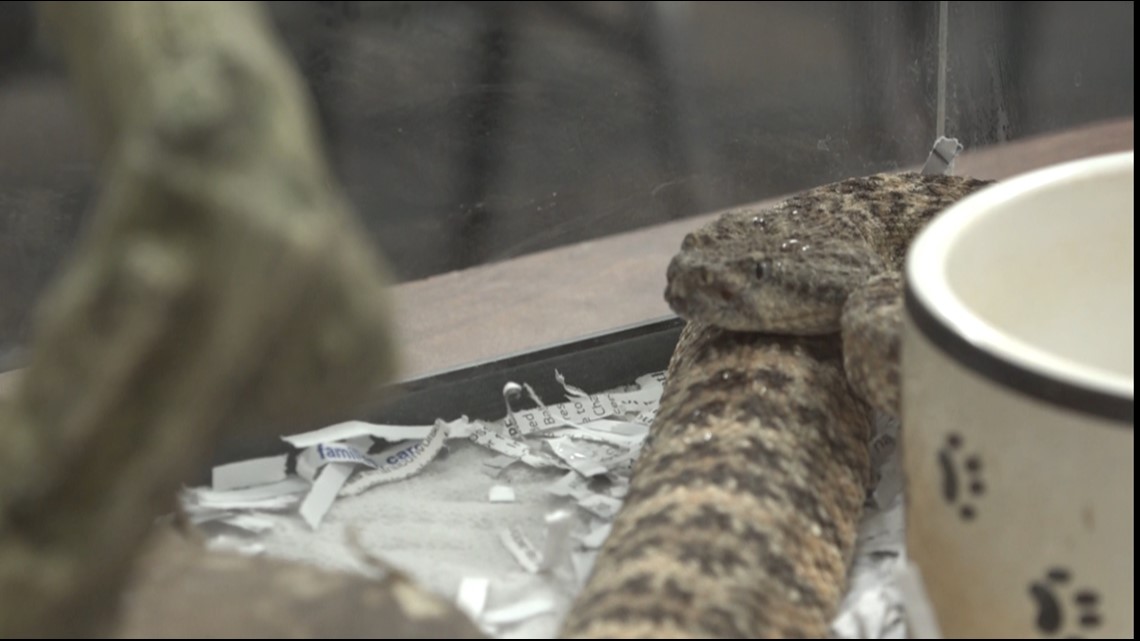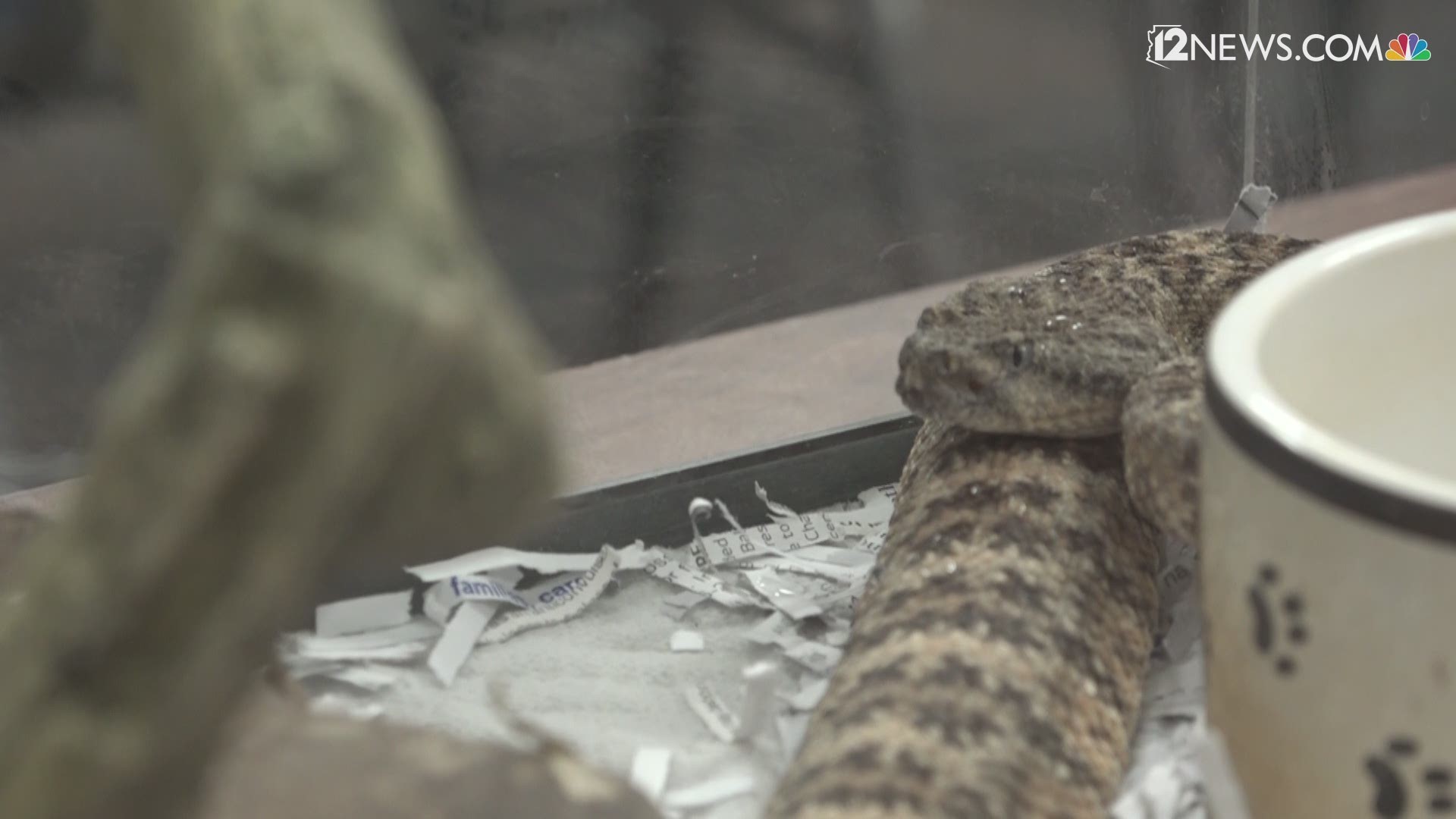ARIZONA, USA — There are 13 species of rattlesnakes that call the Grand Canyon State home. That's more than any other state.
Arizona is literally crawling --- well should we say slithering --- with rattlers. They are in the desert, near hiking trails, roadways and backyards. They have and will eventually encounter people.
And though their bites are venomous and deadly, death by a rattlesnake bite is extremely rare.
The Arizona Department of Game and Fish cites the Arizona Poison Centers in reporting less than 1 percent of rattlesnake bites results in human deaths.
Game and Fish Education Manager Amy Burnett shared a few more misconceptions about Arizona's most high profile reptile to put things in perspective. She had with her an Arizona black rattlesnake and speckled rattlesnake.


The speckled rattlesnake was clearly annoyed by all the misconceptions that are out there about his species, he would not stop rattling during the entire interview. The Arizona black rattlesnake was silent and calm.
"Every rattlesnake is different and they have their own personalities just like people," Burnett said.
Burnett said there are less than a dozen rattlesnake-bite deaths in the U.S. each year and some years that number is closer to five.


"Rattlesnakes don't want to bite you. They can tell how big you are. They don't want to eat you, they don't want to waste their venom, so if they can move away from you they will," Burnett said.
She added taking a bath could be more deadly than these desert-dwelling serpents.
"Statistically, you're more likely die by falling and hitting your head in the bathtub than die by rattlesnake bite," she explained.
She said dangerous encounters arise when people either accidentally or intentionally hurt or bother them, causing them to defend themselves.
To avoid them, watch your step, rattlesnakes are masters of camouflage.
At home, clear away debris and overgrown vegetation. This way there's nowhere for them to hide and find shade. Also, Burnett suggests putting snake fencing in your backyard.
"We've actually created an artificial oasis for wildlife and rattlesnakes are one of the species taking advantage of that," Burnett said.
If you encounter a rattlesnake slowly back away. The snake will likely try to get away from you.
And Burnett urges people to not pick up or feed wildlife.

